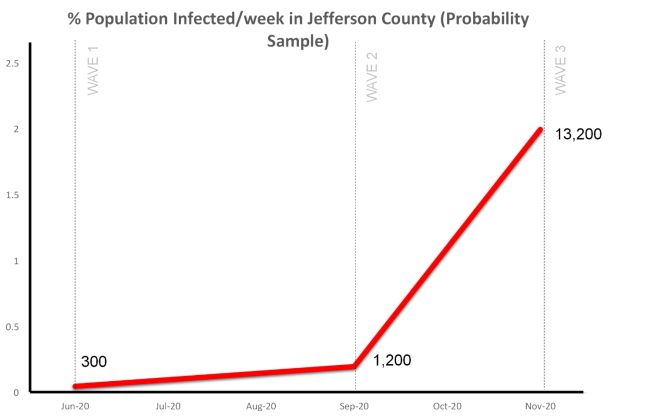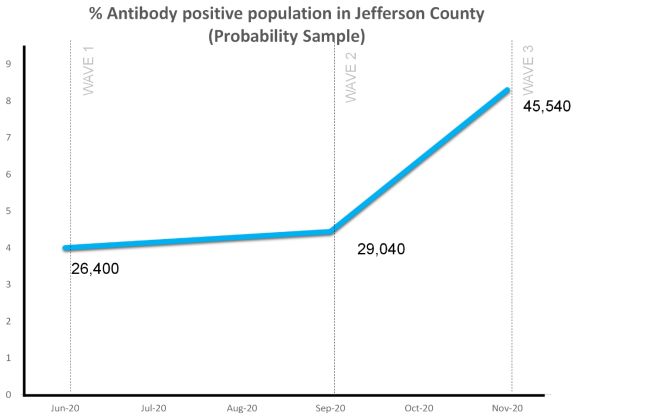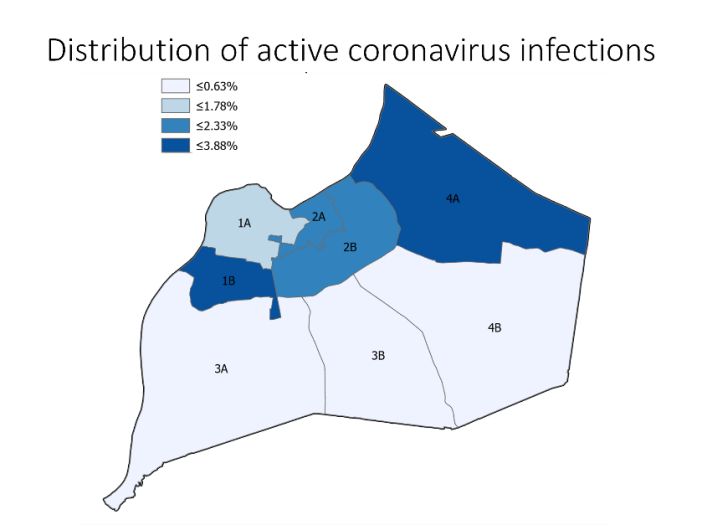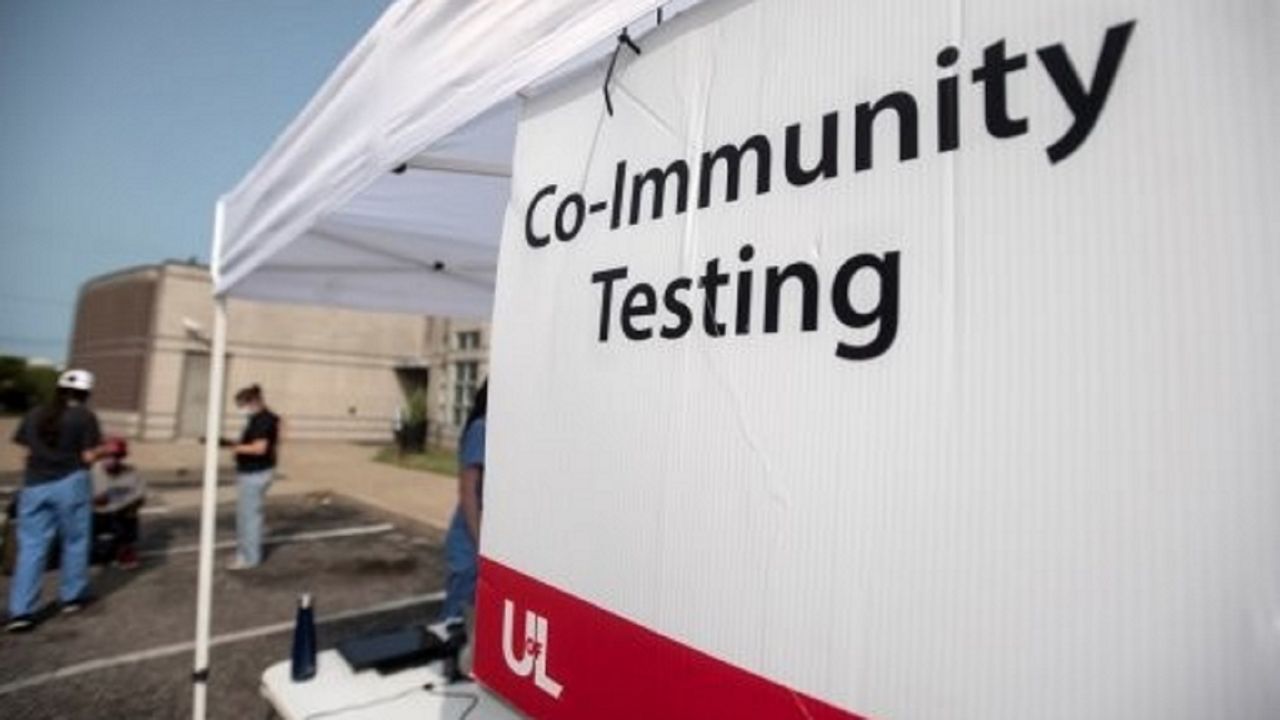LOUISVILLE, Ky. — Coronavirus infection rates in Metro Louisville have increased ten-fold since September, according to the latest results from the Co-Immunity Project. Released Tuesday, the new results show the infection rate rose from .2% to 2% between September and November.
What You Need To Know
- Latest Co-Immunity Project results released Tuesday
- Results find ten-fold increase in COVID-19 infection rate between September and November
- Researchers tested samples from 2,800 people for active infections, antibodies
- Research also found large number of asymptomatic cases
The Co-Immunity Project, at the University of Louisville's Christina Lee Brown Envirome Institute, is a series of studies looking to estimate the prevalance of SARS-CoV-2, the virus causing COVID-19, in Jefferson County.
Researchers from the Center for Predictive Medicine tested samples from 2,800 people representing all parts of Jefferson County for active COVID-19 infections and antibodies between Nov. 9-16. From that sampling, researchers estimate that during those dates, 1 in 50 Louisville residents had COVID-19, and the rate of infection was 5x higher than the publicly reported number of cases.
“At this rate, as many as 13,000 Louisville residents likely are infected today, many of them asymptomatic and who unwittingly may be spreading the virus,” said Aruni Bhatnagar, Ph.D., director of the institute. “These rates are startling and should make every person living in Louisville re-evaluate their personal precautions to avoid coronavirus, especially as we approach the holidays.”
The latest round of results also found that most of the people who had coronavirus did not have "overt" symptoms.
“Most of the individuals we identified as having coronavirus infection did not have overt symptoms, which indicates that a large number of cases are likely to remain undetected,” said Rachel Keith, Ph.D., assistant professor of environmental medicine at UofL, who conducted the study. “We do not know for sure, but it seems likely that the recent increase in infections may be in part due to asymptomatic individuals.”

The project reported several other findings, including a 150% increase in antibody presence compared to documented cases. Researchers estimate that by Nov. 20, over 45,000 people had been infected, compared to the 20,500 known cases documented so far. These data also suggest that roughly 15,000 individuals were infected between September and November.
“One reason for the recent increase in coronavirus infection may be the recent drop in temperature,” Bhatnagar said. “Our analysis of data from 55 countries shows that low temperatures promote the spread of the virus. Hence, we were expecting the rates of infection to rise in winter, but this increase is much more than we thought.

“Unfortunately, things are likely to get much worse in the coming months as temperatures dip even further. Therefore, we urgently need collective action, maybe just for a few months more. An effective vaccine is on the horizon so it seems that there is clear hope ahead that might hearten us to make the necessary sacrifices for a little longer.”
The study also found that Shively and Northeastern Jefferson County had the highest infection rates in Louisville.
To conduct the study, investigators mailed 30,000 letters to homes across Louisville for November's round of testing. The addresses were derived from U.S. Census Bureau tract boundaries in proportion to the total population of each geographic area.

Any adult resident of Jefferson County was also invited to participate through news and social media messages.
In total, 2,800 people were tested, 1,091 in response to the invitations and 1,709 who booked their appointments. Testing took place at 10 community drive-up or walk-up locations, and samples were analyzed at UofL's Regional Biocontainment Laboratory by assistant professor Krystal Hamorsky, Ph.D., and Amanda Lasnik, M.S., at the UofL Center for Predictive Medicine for Biodefense and Emerging Infectious Diseases.
The fourth round of randomized COVID-19 testing in Jefferson County is slated for Dec. 9-14.
Haeli Spears is a digital producer with Spectrum News 1 Kentucky. She is a University of Louisville graduate who started her career with Spectrum News in May, 2020.



